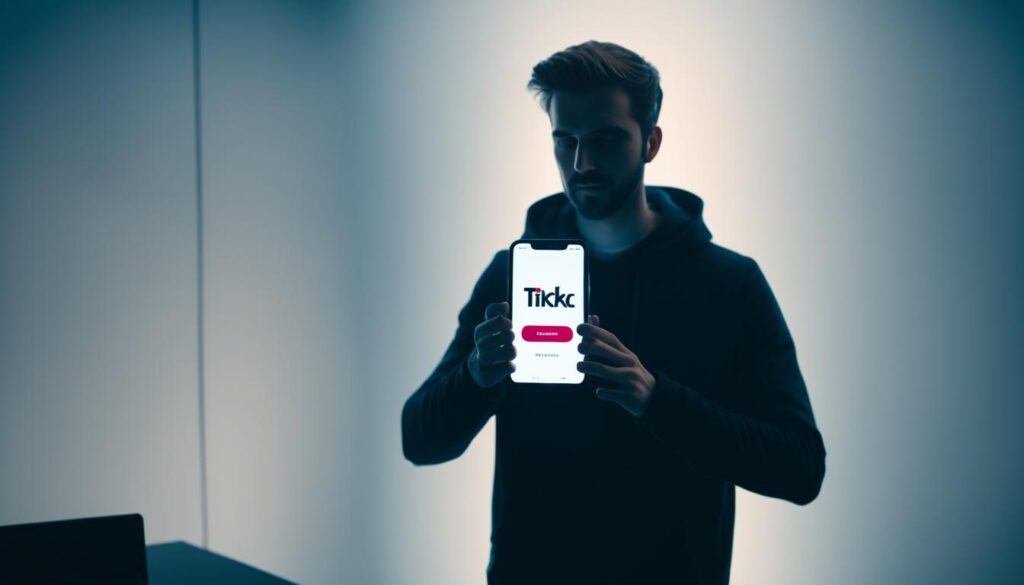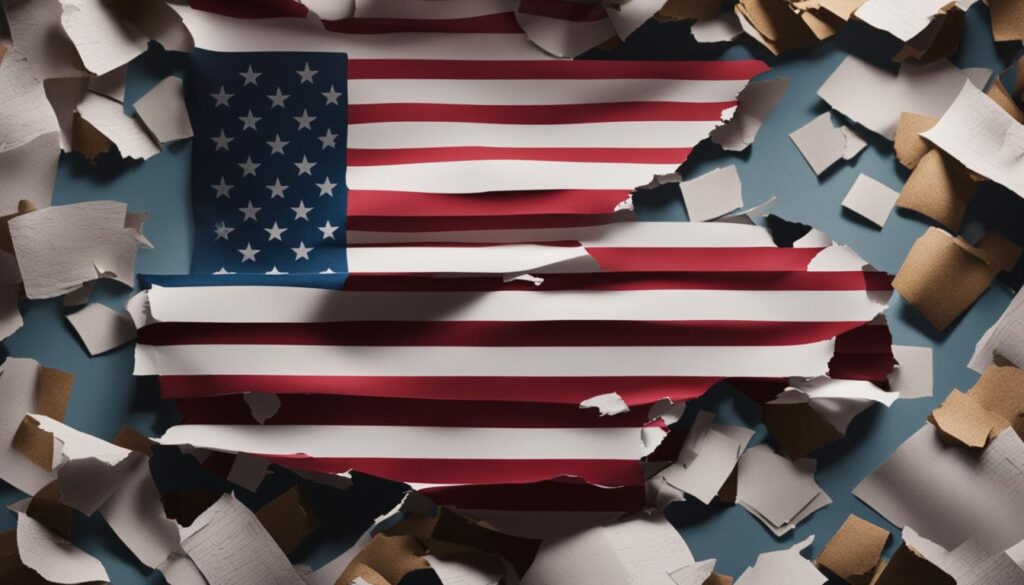The US TikTok Ban has been a hot topic of discussion in recent months. Lawmakers in the US have raised concerns about the app’s connection to its Chinese parent company, ByteDance, citing national security risks. The House of Representatives has passed a bill that effectively bans TikTok unless the company splits from ByteDance within six months. The bill aims to protect American user data and ensure national security. However, there are concerns about the impact of the ban on content creators and small businesses that rely on TikTok for their livelihoods.
Key Takeaways:
- The US TikTok Ban is a result of concerns about the app’s connection to its Chinese parent company, ByteDance.
- The House of Representatives has passed a bill that could effectively ban TikTok unless the company separates from ByteDance within six months.
- The ban aims to protect American user data and ensure national security.
- There are concerns about the impact on content creators and small businesses that rely on TikTok for their livelihoods.
- The fate of TikTok in the US will depend on the bill’s progress through the Senate and potential approval by President Joe Biden.
Lawmakers’ Perspectives on the TikTok Ban
As the discussion around the US government ban on TikTok continues, Republican representatives Nancy Mace, Marjorie Taylor Greene, and Don Bacon have shared their viewpoints on the matter. It’s worth noting that their decisions were not influenced by former President Donald Trump’s opposition to the ban.
“The bill does not effectively protect American data and national security,” stated Mace and Greene, emphasizing their concerns. Mace further highlighted a libertarian perspective, arguing that banning apps from app stores should not be within the government’s jurisdiction.
Bacon, on the other hand, defended the bill, explaining its primary purpose as a means to compel TikTok’s parent company to divest the app to safeguard national security interests.
The contrasting viewpoints among these lawmakers reflect the ongoing debate surrounding the US government ban on TikTok. While some believe the ban falls short in protecting American data and national security, others see it as necessary to mitigate potential risks.
It is crucial to consider these perspectives as policymakers continue to navigate the complex issue of safeguarding national security while addressing the concerns of TikTok users and the broader community.

Lawmakers’ Perspectives Summary:
| Representative | Perspective |
|---|---|
| Nancy Mace | Believes the bill does not effectively protect American data and emphasizes a libertarian perspective against government intervention in app store bans. |
| Marjorie Taylor Greene | Expresses concerns about the bill’s effectiveness in safeguarding American data and national security. |
| Don Bacon | Defends the bill as a means to compel TikTok’s parent company to divest the app, prioritizing national security interests. |
Potential Impact on TikTok Users and Creators
The potential ban on TikTok in the US has sparked concerns among content creators and users alike. With TikTok becoming a platform where many creators have built large communities and businesses, the prospect of a ban is met with fear and uncertainty. These creators rely on TikTok as a source of income and exposure, and a ban would have a profound impact on their livelihoods.
Content creators argue that while security and privacy concerns should be addressed, a complete ban is not the only solution. They believe that there should be guidelines in place to protect user data while allowing the platform to thrive. Many creators have dedicated their time and effort solely to TikTok, quitting their jobs and investing in their TikTok careers. For them, a potential ban would not only be a setback but also a significant financial blow.
Moreover, the impact of a TikTok ban extends beyond individual creators. Small businesses that have flourished on TikTok may face challenges in reaching their target audience and promoting their products or services. TikTok has been a valuable platform for these businesses to connect with potential customers and increase brand visibility. Losing access to the platform would be detrimental to their growth and success.
Additionally, TikTok has fostered a sense of community and connection among its users. Many people have formed genuine friendships and supportive networks through the platform. The potential ban raises concerns about the disruption of these community connections, as users may lose the platform that has brought them together.
| Impact of the Potential TikTok Ban: | Concerns: |
|---|---|
| Content Creators |
|
| Small Businesses |
|
| User Connections |
|
The potential ban on TikTok carries significant implications for users and creators alike. As the debate surrounding the ban continues, it remains uncertain how the situation will unfold and what the future holds for TikTok in the United States.

The TikTok Ban Bill and Its Progress
The TikTok ban bill has gained traction in Congress, signaling potential consequences for the fate of TikTok in the United States. After passing through committee with an uncommon display of bipartisan support, the bill is now set to undergo voting in the House of Representatives. Its primary objective is to compel TikTok to divest the app and sever ties with its Chinese parent company within six months, or else face a ban from US app stores.
The bill has garnered widespread support across party lines, with lawmakers prioritizing national security concerns and protecting American user data. However, opposition to the ban bill has emerged, particularly from TikTok users and younger House lawmakers, raising questions about the delicate balance between security and personal freedoms.
The future of TikTok in the US now rests on the bill’s progress through the Senate and potential approval by President Joe Biden. As debates continue, the significance of the TikTok ban bill extends beyond the app itself, as it prompts discussions about the regulation of social media platforms and the role of foreign ownership in the digital landscape.

“The fate of TikTok in the US lies in the hands of lawmakers as they deliberate the implications of the ban bill. The outcome of these discussions will not only shape the app’s future but also have wider ramifications for the relationship between technology, national security, and personal data integrity.”
– Industry Analyst
Conclusion
The US TikTok ban has had a significant impact on both users and creators of the popular social media app. With the aim of addressing national security concerns and protecting American data, the ban has raised important questions about the future of TikTok in the country.
While the bill being considered by Congress is intended to safeguard national security, there are concerns about the potential consequences for small businesses and the loss of community connections formed on TikTok. Many content creators have built successful businesses and communities on the platform, making the ban a deeply unsettling prospect.
The progress of the TikTok ban bill through Congress will ultimately determine the app’s fate in the US. If the ban is implemented, it remains to be seen how it will impact the social media landscape and the lives of those who rely on TikTok for entertainment, business, and creative expression. With the future of the app hanging in the balance, all eyes are on the discussions and decisions taking place in Congress.
FAQ
What is the US TikTok Ban?
The US TikTok Ban refers to the proposed legislation that aims to effectively ban TikTok unless the app splits from its Chinese parent company, ByteDance, within six months. The ban is motivated by concerns over national security risks and the protection of American user data.
What are the perspectives of lawmakers on the TikTok ban?
Republican representatives Nancy Mace, Marjorie Taylor Greene, and Don Bacon have expressed their views on the TikTok ban. Mace and Greene believe that the bill does not effectively protect American data and national security. Mace emphasizes the libertarian perspective, while Bacon defends the bill, stating that its purpose is to force TikTok’s parent company to divest the app.
How will the potential TikTok ban impact users and creators?
The potential TikTok ban raises concerns among content creators and users. Many creators have built large communities and businesses on TikTok and fear that a ban would harm their livelihoods. There are calls for guidelines to address security and privacy concerns without imposing a complete ban.
What is the status of the TikTok ban bill in Congress?
The TikTok ban bill has made progress in Congress. It passed out of committee with a rare bipartisan vote and is expected to be voted on in the House of Representatives. The bill aims to force TikTok to sell and break ties with its Chinese parent company within six months or face a ban from US app stores.
What will happen to TikTok if the ban is implemented?
The fate of TikTok in the US will depend on the bill’s progress through the Senate and potential approval by President Joe Biden. If the ban is implemented, it will have significant implications for the social media landscape and the lives of those who rely on TikTok for entertainment, business, and creative expression.
Source Links
- https://www.nbcdfw.com/news/politics/house-could-vote-wednesday-on-the-fate-of-tiktok-bill-faces-uphill-battle-in-senate/3487378/
- https://www.cnn.com/politics/live-news/tiktok-ban-bill-house-vote-03-13-24/index.html
- https://floridaphoenix.com/2024/03/13/u-s-house-votes-to-ban-tiktok-unless-it-is-sold-by-china-controlled-parent/








